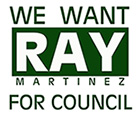Free-Speech Zones Target of Measure for Campuses
By Charles Ashby, The Daily Sentinel
February 2, 2017
DENVER — College students wouldn’t be restricted to free-speech zones in order to express their First Amendment rights under a bill that cleared a Senate committee Thursday.
The measure, offered by Sen. Tim Neville, R-Parker, is aimed at making sure that students, regardless of their political leanings, are not restricted in where they can express themselves when they are in public areas of university and college campuses.
The bill is limited only to those open areas and does not attempt to dictate what happens inside college classrooms, Neville said.
“We’re trying to make sure those free-speech rights are being honored at the same time allowing the university to make sure it can fulfill its educational function,” he said. “The rise of these so-called free-speech or safe-space zones kind of spreads an incorrect premise that this is where you can speak freely, and everywhere else not so much.”
The bill has been in the works for weeks and is not a reaction to this week’s violent riots at the University of California Berkeley, prompted by a planned speech by right-wing provocateur Milo Yiannopoulos. He also spoke at the University of Colorado at Boulder last week. That event sparked numerous protests and resulted in three arrests, but nothing as violent as the Berkeley event.
Under the bill, which recently earned support from the Colorado Press Association, free-speech or safe-space zones would not be allowed.
Still, it would allow college or university officials to establish “reasonable” restrictions so one student’s speech doesn’t interfere with ongoing classes or the safe operation of a facility.
That’s partly because CU doesn’t have a free-speech zone, said Patrick O’Rourke, vice president, university counsel and secretary to the CU Board of Regents.
“We absolutely agree with the senator that free speech and expression rights are crucial to a learning environment, but we try to accommodate those in a way that balances things appropriately,” O’Rouke told the Senate Education Committee, which approved the measure unanimously. “The University of Colorado on all of its four campuses has not created a single free-speech zone and confined speech to those places. The entire campus and its outdoor spaces … can be reserved for expressive activities.”
The measure would not have impacted an incident that occurred at Colorado Mesa University before last fall’s elections, when a professor allowed his students to be recruited in class to stump for Democrat Hillary Clinton’s presidential bid.
The law already bars using state resources to benefit a political candidate.
The bill also wouldn’t restrict invited speakers at university events, but would have an impact on any protests that might occur outside such events.
The measure heads to the full Senate for more debate.

Leave A Comment
You must be logged in to post a comment.